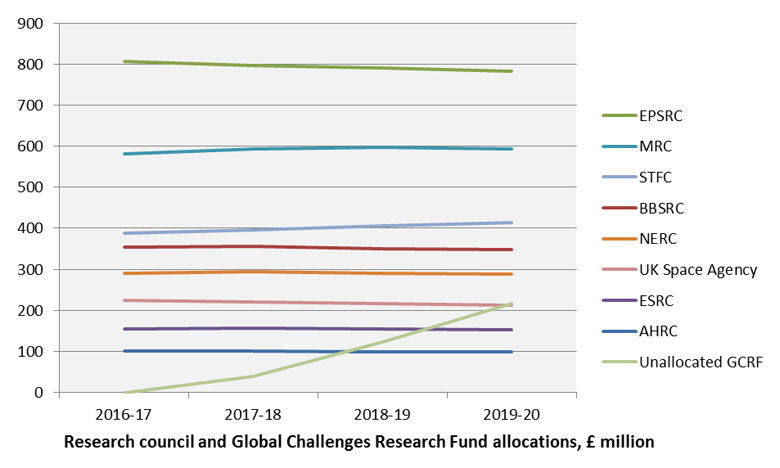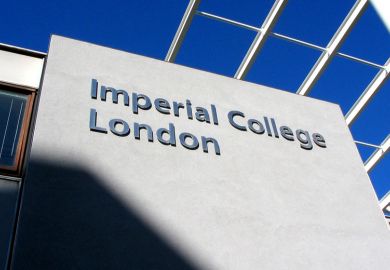Most research councils will see funding cuts in absolute terms over the next four years, according to government funding allocations released today, but nearly £400 million will be made available for new multidisciplinary research.
The Department for Business, Innovation and Skills has added further detail to the announcements in last November’s Spending Review that research spending would be protected in real terms and include a £1.5 billion fund to tackle problems in the developing world.
Overall, resource funding will grow from £4.8 billion in 2016-17 to £5.1 billion in 2019-20.
However, this appears to be slightly less than was promised in the Spending Review document, which said that “science funding of £4.7 billion will be protected in real terms and total spend will be over £500 million higher by the end of the Parliament”, implying a 2019-20 allocation of £5.2 billion.
In terms of individual allocations, all research councils except the Medical Research Council and the Science and Technology Facilities Council will see their resource allocations fall in absolute terms, although figures for 2018-19 and 2019-20 are indicative only.
The bulk of the overall rise in resource funding will go into the Global Challenges Research Fund, which sets out to tackle problems in developing countries.
Research council resource budgets, 2016-17 to 2019-20

Most of this will not be allocated to a specific research council, and instead will “promote multidisciplinary research”. The value of this type of funding will rise rapidly and come to £377 million in total over the four-year period.
“This approach will be developed with delivery partners over the coming months,” the document says.
Meanwhile, the Higher Education Funding Council for England’s block grant, mainly for quality-related research funding, will rise from £1,695 million to £1,745 million over the same period.
Kieron Flanagan, senior lecturer in science and technology policy at the University of Manchester, said that the requirement that the GCRF “unallocated” funding be used for multidisciplinary research made it less likely it could simply be used to fund existing research projects.
It might be used for major interdisciplinary centres or capacity building, he said.
Andy Westwood, professor of politics at the University of Winchester, and associate vice-president of public affairs, University of Manchester, said: “The thing that’s surprising…is that over the period the vast majority of [research councils] get a cut [in their funding]."
He added that the money set aside to tackle global challenges, and a £2.2 billion “grand challenges” pot for capital spending, would allow ministers to make “headline announcements” over new facilities or projects.
Resource funding figures for research councils, Global Challenges Research Fund and Hefce (£m)
| 2016-17 | 2017-18 | 2018-19* | 2019-20* | |
| AHRC | 101 | 101 | 99 | 98 |
| BBSRC | 353 | 356 | 350 | 347 |
| EPSRC | 807 | 796 | 790 | 783 |
| ESRC | 155 | 157 | 154 | 153 |
| MRC | 581 | 594 | 597 | 594 |
| NERC | 291 | 294 | 290 | 288 |
| STFC | 388 | 396 | 406 | 414 |
| Unallocated GCRF | 0 | 38 | 122 | 216 |
| Hefce | 1,695 | 1,716 | 1,730 | 1,745 |
Source: BIS. *Indicative allocations.




